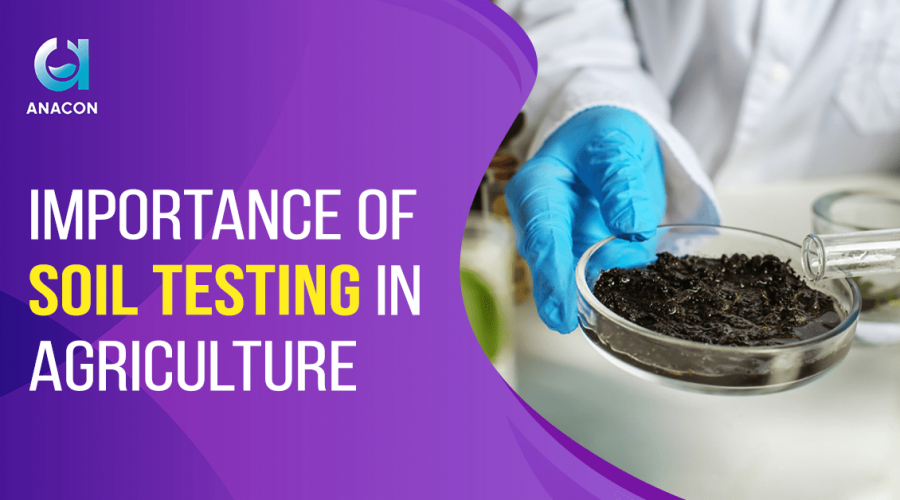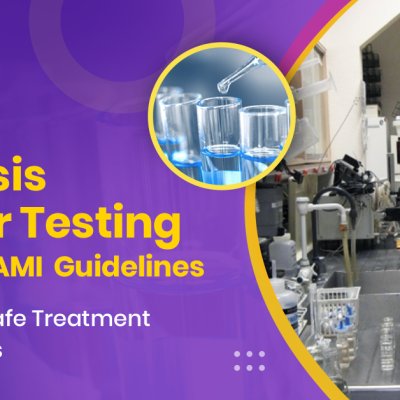
Importance of Soil Testing in Agriculture
Introduction
Soil, the very foundation of agriculture, isn’t just dirt. It’s a complex ecosystem teeming with life and nutrients crucial for plant growth. But how do farmers ensure their soil is in top-notch condition for optimal crop yield? This is where soil testing steps in as a vital tool in modern farming practices. In this article, we’ll delve into the significance of soil testing in agriculture and explore the services offered by Anacon Laboratories, a trusted name in the field.
What is Soil Testing?
Importance of Soil Testing
Soil testing for agriculture involves analyzing soil samples to evaluate its health and fertility levels. This process provides valuable insights into the soil’s nutrient content, pH levels, and overall structure. By understanding the soil’s composition, farmers can make informed decisions regarding fertilizer application, irrigation, and crop selection.
Benefits of Soil Testing for Agriculture
-
Improved Crop Yield
One of the primary benefits of Soil testing for agriculture is its ability to enhance crop yield. By tailoring fertilizer and nutrient management strategies based on soil test results, farmers can optimize plant nutrition, leading to healthier crops and increased yields.
-
Nutrient Management
Soil testing for agriculture helps farmers identify nutrient deficiencies or imbalances in the soil. By pinpointing specific nutrient requirements, farmers can apply fertilizers more efficiently, minimizing waste and reducing environmental impact.
-
Environmental Conservation
Efficient nutrient management, facilitated by Soil testing for agriculture, contributes to environmental conservation efforts. By reducing the use of excess fertilizers, soil erosion and nutrient runoff into water bodies can be mitigated, preserving water quality and ecosystem health.
Types of Soil Tests
Soil tests can be categorized into three main types based on the aspects they analyze:
-
Chemical Tests
Chemical tests assess the soil’s nutrient levels, pH, and presence of contaminants such as heavy metals or pesticides.
-
Physical Tests
Physical tests focus on soil texture, structure, compaction, and water retention capacity, providing insights into soil drainage and aeration.
-
Biological Tests
Biological tests evaluate the soil’s microbial activity, including beneficial organisms like bacteria and fungi, which play a crucial role in nutrient cycling and soil health.
Soil Testing for Agriculture Process
Sample Collection
The soil testing process begins with sample collection from various locations within the farm. These samples are typically taken from different depths to capture a comprehensive overview of the soil profile.
Laboratory Analysis
Once collected, the soil samples are sent to a certified laboratory like Anacon Laboratories for analysis. Here, sophisticated techniques are employed to assess the soil’s chemical, physical, and biological properties.
Interpretation of Results
After analysis, the laboratory provides detailed reports outlining the soil’s characteristics and nutrient levels. Trained agronomists interpret these results and offer recommendations tailored to the specific needs of the farm.
Implementing Soil Testing on Your Farm
Consulting with Experts
If you’re thinking about implementing soil testing on your farm, the first step is to consult with experts. Agricultural extension offices and soil testing laboratories can provide guidance on sampling techniques, interpreting results, and implementing soil fertility management plans.
Regular Monitoring
Soil testing isn’t a one-and-done deal. To reap the full benefits, it’s essential to test your soil regularly. Soil conditions can change over time due to factors like weather, crop rotation, and management practices, so regular monitoring is key to maintaining soil health.
Conclusion
Soil testing plays a pivotal role in modern agriculture, as it provides crucial information to farmers that enables them to optimize crop production while minimizing environmental impact. Anacon Laboratories offers reliable and efficient soil testing services that enable farmers to make informed decisions for their farms’ long-term sustainability. By harnessing the power of soil testing, farmers can improve their crop yields and safeguard the environment, making it an essential tool for modern agriculture.
Anacon Laboratories provides accurate and dependable soil testing services, making it an indispensable partner for farmers seeking to improve the productivity and sustainability of their farms.





